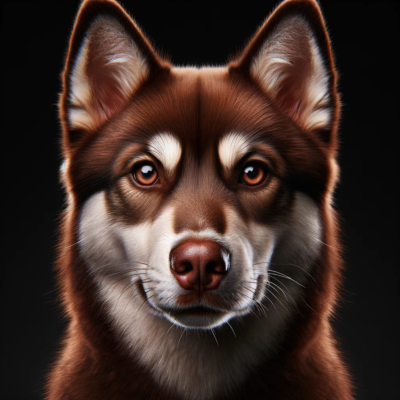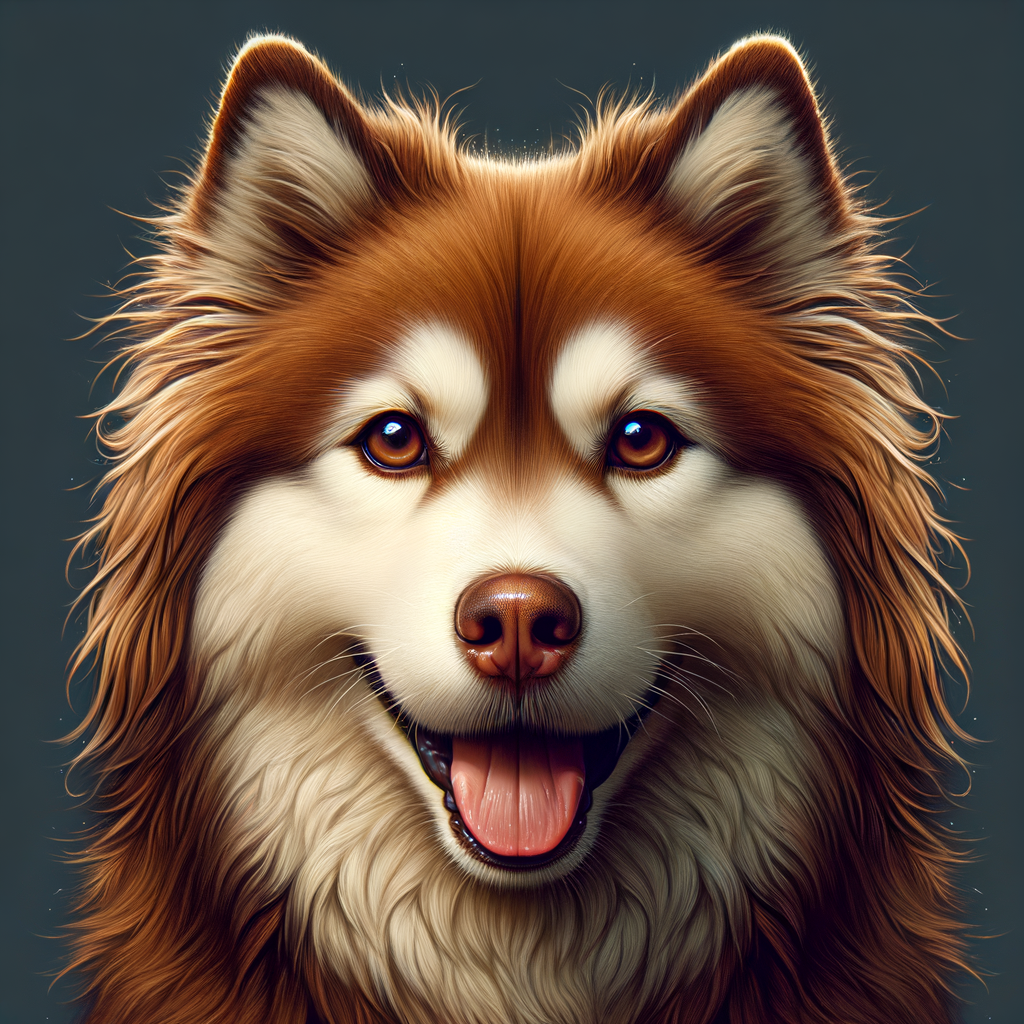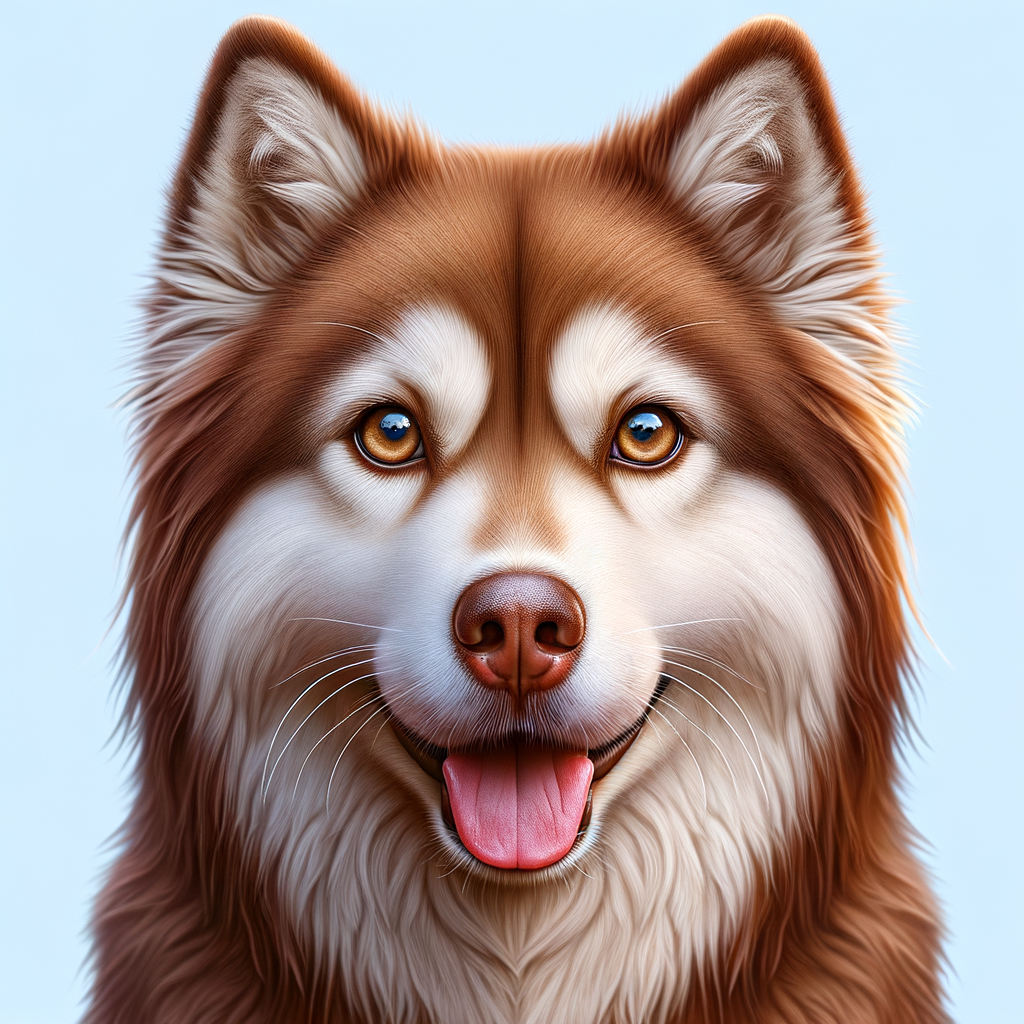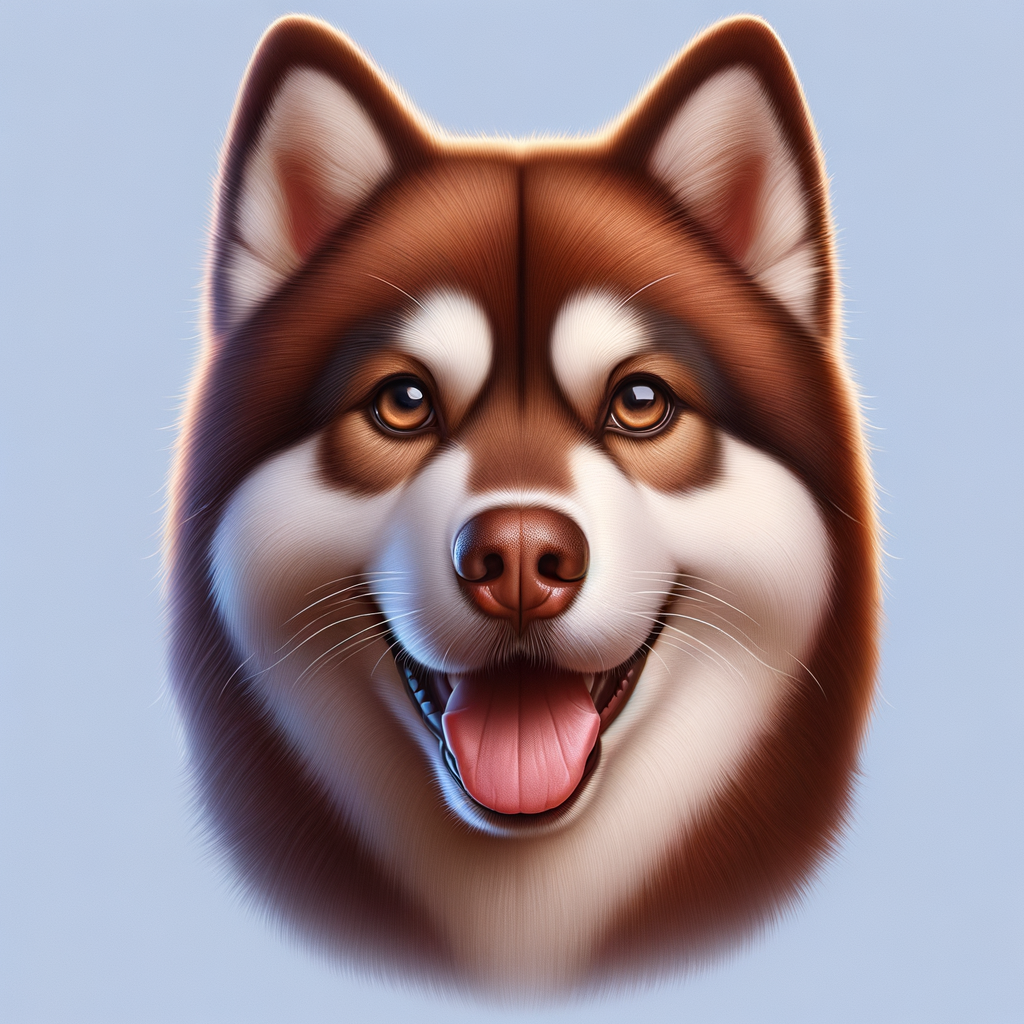Hello, I’m Dr. Candy, a holistic veterinarian with a particular interest in canine breeds. In this article, we’ll be diving into the captivating world of the chocolate-colored Siberian Husky, commonly referred to as the brown Husky. We’ll explore their appearance, temperament, lifespan, and even tips on whether to rescue or purchase one. So, if you’re considering adding a brown Husky to your family or simply intrigued by this beautiful breed, you’ve come to the right place.

General Temperament Of The Brown Husky
Ever wondered what it’s like to share your life with a playful, energetic, and charming brown husky? Let’s dive into the world of these charismatic canines and discover their unique temperaments!
Is Brown Husky Family & Kid Friendly
Yes, most definitely! Brown Huskies are known for their incredible friendliness and sociability. They have a strong affinity for their human families, making them an excellent choice for a family pet. Their good-natured disposition, combined with their playful energy, makes them a hit with children. They love interactive play and can spend hours romping around with kids. This not only keeps the children entertained but also helps the husky burn off some of that boundless energy.
However, like any breed, it’s essential to supervise interactions between dogs and small children. Huskies are large and exuberant, and they could accidentally knock over a small child during play. So, always ensure that playtime is safe and controlled.
Energy Level Of Brown Husky
If you’re looking for a laid-back, couch potato pet, a brown husky might not be your best match. These dogs are known for their high energy levels and need for regular, intense exercise. Originating from Siberia’s harsh climates, Huskies are built for endurance. They were bred to pull heavy sleds over long distances in the snow. So, don’t be surprised when your brown husky has a seemingly endless supply of energy.
- Regular Exercise: A healthy adult brown husky requires at least 2 hours of exercise a day. This could be a mixture of walks, runs, playtime, and mentally stimulating activities.
- Playtime: Huskies love to play! Fetch, tug of war, and hide and seek are all games that your brown husky will enjoy.
- Mental Stimulation: Along with physical exercise, Huskies also need mental stimulation. Puzzle toys, obedience training, and agility courses can keep their minds sharp.
Remember, a tired husky is a happy husky. Ensuring your brown husky gets the right amount of exercise and mental stimulation can prevent behavioral problems like digging, chewing, and excessive barking.
Overall, brown huskies are a joy to have around. Their friendly nature, coupled with their energetic demeanor, make them a fun and interactive addition to any family. However, they require dedicated owners who can meet their exercise needs and provide them with the love and attention they deserve.

Average Lifespan Of Brown Husky
When it comes to the brown husky, one of the most frequently asked questions is about the lifespan of this beautiful canine breed. Generally, a healthy brown husky can live between 12 to 15 years. This range can vary depending on several factors, two of which are diet and the timing of spaying or neutering.
How Diet Affects Lifespan
Like humans, the diet of your brown husky plays a crucial role in determining its lifespan. A balanced diet can contribute to a healthier, longer life. Huskies are active dogs and require a diet rich in protein and fat to fuel their energy needs. Feeding your brown husky a high-quality, balanced diet can help prevent obesity, heart disease, and other diet-related health issues. Remember, a healthy dog is a happy dog!
Also, ensure that your brown husky has access to clean, fresh water at all times. Dehydration can lead to serious health problems. And, as a dog parent, you always want to avoid that, right?
The Holistic Vet’s Perspective of How Spay & Neuter Timing Affects Lifespan
Now, let’s talk about spaying and neutering. Traditionally, these procedures are recommended for dogs to prevent unwanted litters and certain health issues. However, recent studies have shown that early spay and neuter of dogs can cause some serious health problems.
According to holistic veterinarians, early spay and neuter can lead to joint and bone deformities, disruptions in hormone levels and development, and even an increased risk of cancer. These issues can potentially lead to serious chronic diseases like thyroid problems and Cushing’s disease.
This doesn’t mean you shouldn’t spay or neuter your brown husky. Instead, it’s about understanding when is the best time to do so. Discuss with your vet about the right age for your brown husky to undergo these procedures.
Remember, every brown husky is unique, and what works for one may not work for another. It’s always best to consult with a veterinarian to help determine the best diet and timing for spaying or neutering for your brown husky. After all, we all want our furry friends to live a long, healthy, and happy life, right?
Should You Rescue or Purchase a Brown Husky?
When it comes to adding a brown husky to your family, you have two main options: adopting from a rescue center or buying from a breeder. Both options come with their own set of benefits and it’s important to consider these carefully before making your decision.
Benefits of Rescuing or Adopting
Choosing to rescue or adopt a brown husky can be an incredibly rewarding experience. Here are some reasons why:
- Providing a Second Chance: By adopting a husky, you’re giving a dog a second chance at a loving home. Many dogs in shelters have been abandoned or mistreated and your home could be the safe haven they need.
- Cost-Effective: Adoption fees are generally much lower than the price you would pay at a breeder. The fee usually includes vaccinations, microchipping, and spaying or neutering, saving you these additional costs.
- Supporting Animal Welfare: When you adopt, you’re supporting the shelter and helping them continue their work in rescuing and caring for animals.
Benefits of Buying
On the other hand, purchasing a brown husky from a reputable breeder has its own advantages:
- Knowing the Dog’s Background: Breeders can provide detailed information about the dog’s lineage, health, and temperament. This can be beneficial if you’re looking for a specific type of husky or if there are certain health issues you want to avoid.
- Early Socialization: Reputable breeders often begin socializing puppies at a young age, which can make them easier to train and integrate into your family.
- Supporting Responsible Breeding: By buying from a reputable breeder, you’re supporting ethical breeding practices and helping to discourage puppy mills and irresponsible breeders.
Whether you choose to rescue or purchase your brown husky, the most important thing is that you’re prepared to offer a loving, secure, and caring home for your new furry friend. Remember, a dog is a long-term commitment and requires time, energy, and resources. But the joy and companionship they bring are well worth it!

Average Cost for a Brown Husky
When it comes to owning a brown husky, one of the first things you’re likely to consider is the cost. The price of a brown husky can vary significantly based on factors such as the breeder’s reputation, the puppy’s lineage, and the location. On average, you can expect to pay anywhere between $600 and $1,300 for a brown husky puppy from a reputable breeder.
Average Cost
The cost of a brown husky puppy from a reputable breeder typically ranges from $600 to $1,300. However, this price can go up if the puppy comes from a superior lineage or has unique characteristics. It’s also worth noting that this is just the initial cost. Owning a husky comes with ongoing expenses for things like food, grooming, vet visits, and training. Therefore, it’s important to factor in these costs when considering whether to get a husky.
What to Look for in a Breeder
When looking for a brown husky breeder, there are several key things to consider. Here are a few tips:
- Reputation: Always choose a breeder with a good reputation. You can check online reviews or ask for references from previous customers.
- Knowledge: A good breeder should be knowledgeable about the breed and be able to answer all your questions about the husky’s temperament, health, and care needs.
- Health Testing: Reputable breeders will perform health tests on their dogs to ensure they are free from genetic diseases common in the breed.
- Living Conditions: The puppies should be raised in a clean, comfortable environment and be well-socialized.
Remember, a good breeder will be just as interested in finding a good home for their puppies as you are in finding a good puppy. They should ask you questions about your lifestyle, why you want a husky, and how you plan to care for the dog.
While the cost of a brown husky might seem high, remember that you’re not just paying for a puppy. You’re paying for the breeder’s expertise, the care and socialization the puppy received, and the peace of mind that comes from knowing your puppy has been health tested and comes from good stock. So, while it’s tempting to go for a cheaper option, remember the old adage: you get what you pay for.
Training & Behavior Of Brown Husky
Just like their blue, black, or white counterparts, the brown husky is a canine breed known for its intelligence and independent spirit. However, their intelligent nature doesn’t always translate to easy training. They are independent thinkers, often with a stubborn streak.
Overall Trainability
The trainability of a brown husky is moderate. They are highly intelligent, but their independent nature can sometimes make them a bit stubborn. Consistency, patience, and positive reinforcement are the keys to training a husky. It’s best to start training as early as possible, ideally when they are puppies. Socialization is also crucial for a well-behaved and balanced husky. They need to be exposed to a variety of people, animals, and environments to develop a good temperament.
Crate Training Is Recommended And Why
Crate training is recommended for the brown husky. This practice can provide a safe and secure space for your furry friend and can be an effective tool in house training. Huskies, like most dogs, don’t like to soil their sleeping areas. A crate can help teach them to control their bladder and bowel movements. Ensure the crate is of appropriate size, not too small or too large, and never use it as a form of punishment. Remember, the crate should always be a positive, comfortable space for your husky.
Potential Negative Behaviors To Watch For With Brown Husky
Despite their playful and friendly nature, brown huskies can display a few negative behaviors if not properly trained and socialized. One of the most common issues with this breed is their tendency to howl or bark excessively. This behavior can be a form of communication or a sign of boredom. Regular exercise, mental stimulation, and attention can help mitigate this issue.
Another potential negative behavior is their high prey drive. Huskies were bred as sled dogs, and they have a natural instinct to chase small animals. It’s essential to keep them on a leash when in an unsecured area and to have a secure fence in your yard. They are also known for being escape artists. These dogs are smart and can quickly figure out how to open gates or dig under fences.
In addition, some huskies may display signs of separation anxiety, such as destructive chewing or excessive howling when left alone. Providing sufficient exercise, mental stimulation, and crate training can help alleviate these issues.
Remember, every brown husky is unique and may not exhibit all these behaviors. Proper training, lots of love, and understanding can help you and your brown husky have a mutually rewarding relationship.

Grooming Requirements For Brown Husky
When it comes to grooming your brown husky, there are a few key things to keep in mind. These dogs are known for their remarkable brown fur, and maintaining its health and luster requires some dedicated care.
What About Shedding
First off, let’s tackle the elephant in the room – shedding. Yes, your brown husky will shed. In fact, they are often referred to as “heavy shedders”, shedding their undercoat twice a year, in a process known as “blowing their coat”. During these times, you’ll notice an increase in loose fur around your home, and might feel like you’re living in a snow globe of fur!
Regular brushing can help manage this situation and keep your home relatively fur-free. Ideally, you should brush your husky at least a few times a week. This not only helps control shedding but also distributes natural oils throughout their fur, keeping their coat healthy and shiny. A slicker brush or a deshedding tool would be ideal for a brown husky.
Excessive Shedding May Be Due To Nutrition
While shedding is natural for a brown husky, excessive shedding can be a sign of poor nutrition. Just like in humans, a dog’s diet greatly affects the condition of their skin and hair. A balanced diet rich in essential fatty acids, particularly Omega-3 and Omega-6, can help promote a healthy coat and reduce excessive shedding.
Some common signs of poor nutrition include dry, dull fur, excessive shedding, and skin issues. If you notice these signs, it might be time to reevaluate your pet’s diet or consult with a veterinarian. But don’t worry too much, we will delve deeper into the importance of nutrition and diet for your brown husky in the upcoming section of this article.
Besides brushing and proper nutrition, other grooming needs of your brown husky include regular bathing, teeth brushing, ear cleaning, and nail trimming. Remember, a well-groomed husky is not just about appearance, it’s also about their overall health and well-being.
So, while it may seem like a bit of a chore, taking care of your husky’s grooming needs is an integral part of their care. It’s a small price to pay for the joy and companionship they bring into our lives!
Stay tuned for more tips on how to keep your brown husky healthy and happy, in the next part of this comprehensive guide!
Health Of Brown Husky
Overall Health
Brown Huskies, like their fellow Siberian Huskies of other colors, are generally healthy dogs. They are a robust breed with a strong immune system, known for their resilience and endurance. They are sporty canines, with a natural predisposition for outdoor activities and a high energy level. This contributes significantly to their overall well-being.
However, good health is not just about genetics. It’s also about the care provided by you, the dog parent. Regular exercise, a balanced diet, and routine check-ups with the vet play a crucial role in maintaining the health of your brown husky.
Potential Health Conditions
Despite their overall good health, brown huskies, like any other breed, can be prone to certain health conditions. These include:
- Hip Dysplasia: This is a genetic condition where the thigh bone doesn’t fit snugly into the hip joint. While it can occur in any dog, it is somewhat common in Siberian Huskies. Regular vet check-ups can help detect this condition early.
- Eye Disorders: Huskies are known to have a variety of eye conditions, including cataracts and progressive retinal atrophy (PRA), a degenerative eye disorder. If your brown husky frequently bumps into furniture or has trouble seeing in low light, it’s time for an eye check-up.
- Hypothyroidism: This condition occurs when the body doesn’t produce enough thyroid hormone and can lead to obesity, lethargy, and other health issues. Regular blood tests can help detect this condition.
While these health conditions sound concerning, remember that they are not guaranteed to occur in every brown husky. Regular veterinary care and a healthy lifestyle can go a long way in preventing and managing these issues.
Conclusion
Raising a brown husky is an enriching experience filled with playful moments, affection, and lots of energy. Being aware of their health conditions helps you be a proactive pet parent, ready to tackle any health issues that may arise.
Don’t let the possibility of health conditions deter you from welcoming this beautiful, chocolate-colored canine into your life. With the right care, your brown husky can lead a healthy, happy, and long life. Remember, every dog deserves a loving home that provides them with the care they need. Your brown husky is no different.
So, to all the brown husky parents and those planning to adopt or buy one, here’s a paw salute to you for choosing such a wonderful breed. May your journey be filled with wagging tails, wet noses, and unconditional love!
Nutrition & Diet For Brown Husky
As you well know, diet plays a pivotal role in the overall health and wellbeing of your brown Husky. It’s not just about feeding your Husky; it’s about feeding them the right kind of food. So, what does a well-balanced diet for a brown Husky look like? Let’s get some expert advice from Dr. Candy.
Nutrition Tips From Dr. Candy
Dr. Candy, a renowned canine nutritionist, emphasizes that brown Huskies are energetic and athletic dogs. She suggests a diet high in protein to support their active lifestyle. Here are some nutrition tips that she recommends:
- High-quality protein: Protein should be the main component of your brown Husky’s diet. It provides the essential amino acids that your Husky needs for muscle development and repair.
- Healthy fats: Fats provide your Husky with energy and help keep their coat shiny and healthy. Look for foods with sources of omega-3 and omega-6 fatty acids.
- Complex carbohydrates: While Huskies don’t need a lot of carbohydrates, they can benefit from complex ones that provide sustained energy and aid in digestion.
- Vitamins and minerals: These are essential for a variety of bodily functions, including immune support and bone health.
Dr. Candy warns against a one-size-fits-all approach to canine nutrition. Each brown Husky is unique, and their dietary needs may differ based on their age, weight, health status, and activity level.
Best Foods For Brown Husky
Now, let’s dive into the topic of the best foods for your brown Husky. Here are some top picks to consider:
- Blue Buffalo Wilderness High Protein Grain Free: This food is packed with real chicken to help build and maintain lean muscle mass.
- Wellness CORE Grain-Free Original Recipe: This option includes premium, natural ingredients with added vitamins, minerals, and antioxidants.
- Nutro Ultra Adult Dry Dog Food: A blend of 15 vibrant superfoods like coconut, chia, kale, and blueberries, this food ensures balanced nutrition.
Remember, the best way to determine the right diet for your brown Husky is to consult with your vet or a canine nutritionist. They can provide personalized advice based on your Husky’s specific needs.
Feeding your brown Husky a balanced, nutritious diet is one of the best ways to ensure they live a long, healthy, and active life. Your Husky’s nutrition is more than just a meal; it’s an investment in their health and happiness. So, make each meal count! And remember, the love and care you pour into your Husky’s diet will be returned tenfold in companionship and affection from your furry friend.
Frequently Asked Questions
What is a Brown Husky?
A Brown Husky, often referred to as a Chocolate Husky, is a variant of the Siberian Husky breed known for its distinctive brown coat. This color is relatively rare compared to the common black and white Siberian Husky.
Is the temperament of a Brown Husky different from other Siberian Huskies?
No, the color of a Siberian Husky does not affect its temperament. Brown Huskies, like all Siberian Huskies, are known to be friendly, outgoing, and intelligent dogs with a strong pack instinct.
How to take care of a Brown Husky’s coat?
A Brown Husky’s coat requires regular grooming due to its double coat nature. Brushing at least once a week will help to remove loose fur and keep the coat healthy. Bathing should be done only when necessary to avoid stripping the coat of its natural oils.
Are Brown Huskies more prone to health issues?
No, Brown Huskies are not more prone to health issues than other Siberian Huskies. However, like all breeds, they can be susceptible to certain genetic conditions. Regular vet check-ups and a healthy diet can help to maintain their overall health.
Where can I get a Brown Husky?
Brown Huskies can be adopted from breed-specific rescue groups or purchased from responsible breeders. It’s important to do thorough research to ensure you’re dealing with a reputable source that prioritizes the health and well-being of their dogs.
Dr. Candy, a holistic veterinarian and certified raw dog food nutrition specialist, graduated from Oklahoma State University in 2009 with a DVM and has since specialized in companion animal nutrition, advocating for species-specific diets. With a background in wildlife rehabilitation and oil spill response, she combines holistic health and conventional medicine in her unique approach to treating chronic diseases, allergies, and autoimmune conditions in pets. As the owner of a veterinary practice in Colorado and an author, Dr. Candy is dedicated to educating pet parents and improving the health and happiness of animals.




